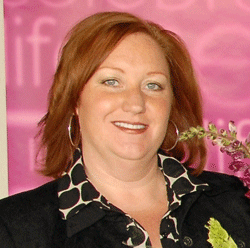Planning an Event? Learn This Tactic for Staying Focused
Sharon Santino,
Sep 11, 2012
 Ever wonder how your well-intentioned event ended up with an unnecessary ice sculpture, an overpriced chocolate fountain and a sorely misplaced inflatable slide? Sure, it all sounded great in theory, but none of these things added anything to your event or furthered your organization's mission - it just sent you over budget and put you on the accounting department's radar.
Ever wonder how your well-intentioned event ended up with an unnecessary ice sculpture, an overpriced chocolate fountain and a sorely misplaced inflatable slide? Sure, it all sounded great in theory, but none of these things added anything to your event or furthered your organization's mission - it just sent you over budget and put you on the accounting department's radar.
During the planning stages, it's often hard to determine what will add value and what will fall flat. But you're in luck - we have a tactic to help you and your team stay focused while planning for your next event.
The last time we spoke with our event guru, Tracy J. Moran, CSEP, we discussed the importance of strategy in event planning, and how to keep your team on the path to success while planning your occasion.
Let's delve a little deeper into event strategy and talk about a tactic for keeping your team on-track during the early planning stages: making sure all of your purchases are 'investments,' not 'expenses'.
She says during your planning sessions, your team's natural enthusiasm can sometimes distract them from the true purpose of the event and poor decisions made during this time can take away from the quality of the event and its end-goals.
"Event planning is fun because your team gets to generate a bunch of creative ideas," Moran says. "However, while many of these ideas - and their corresponding expenses - seem 'cool,' they may not line up with your event's purpose."
She recommends asking your team if an idea is an 'investment' or an 'expense' to keep them on-track. "If a proposed purchase is an 'investment,' buying it will both enhance your event in the short-term and bring value to your organization in the long-term," Moran says.
"If a proposed purchase is an 'expense,' it won't add to the quality of your event, contribute to its purpose or live beyond the occasion. It'll simply be an 'extra' or a bell and whistle."
"For example, let's say you're hosting a fundraiser for a non-profit ballet troupe and you know that there will be a gap in-between the reception and the dinner. Your team thinks there should be entertainment during the down time. I would argue 'no' to an idea that involves two artists carving ice sculptures with chainsaws. Is that a cool idea? Yes. But does it bring value to your ballet fundraising efforts? Probably not," she advises. "However, if someone suggests having a company of child ballerinas dance through the crowd to the Nutcracker, which reinforces the idea that investing money in the non-profit is a good choice, I would say 'yes'. Good planning means thinking ahead and keeping the focus on items that will help you accomplish - not derail - your goals."
Moran says investigating whether a purchase is an 'investment' or 'expense' will not only keep your team focused, but will also save your organization time and money. (Also, you won't have to worry about chain-saw wielding sculptors.)
Did you enjoy reading our event planning advice? Keep an eye on our blog or subscribe to our RSS feed for more tips and trick from industry veterans that will help you plan your next conference, event or trade show.


